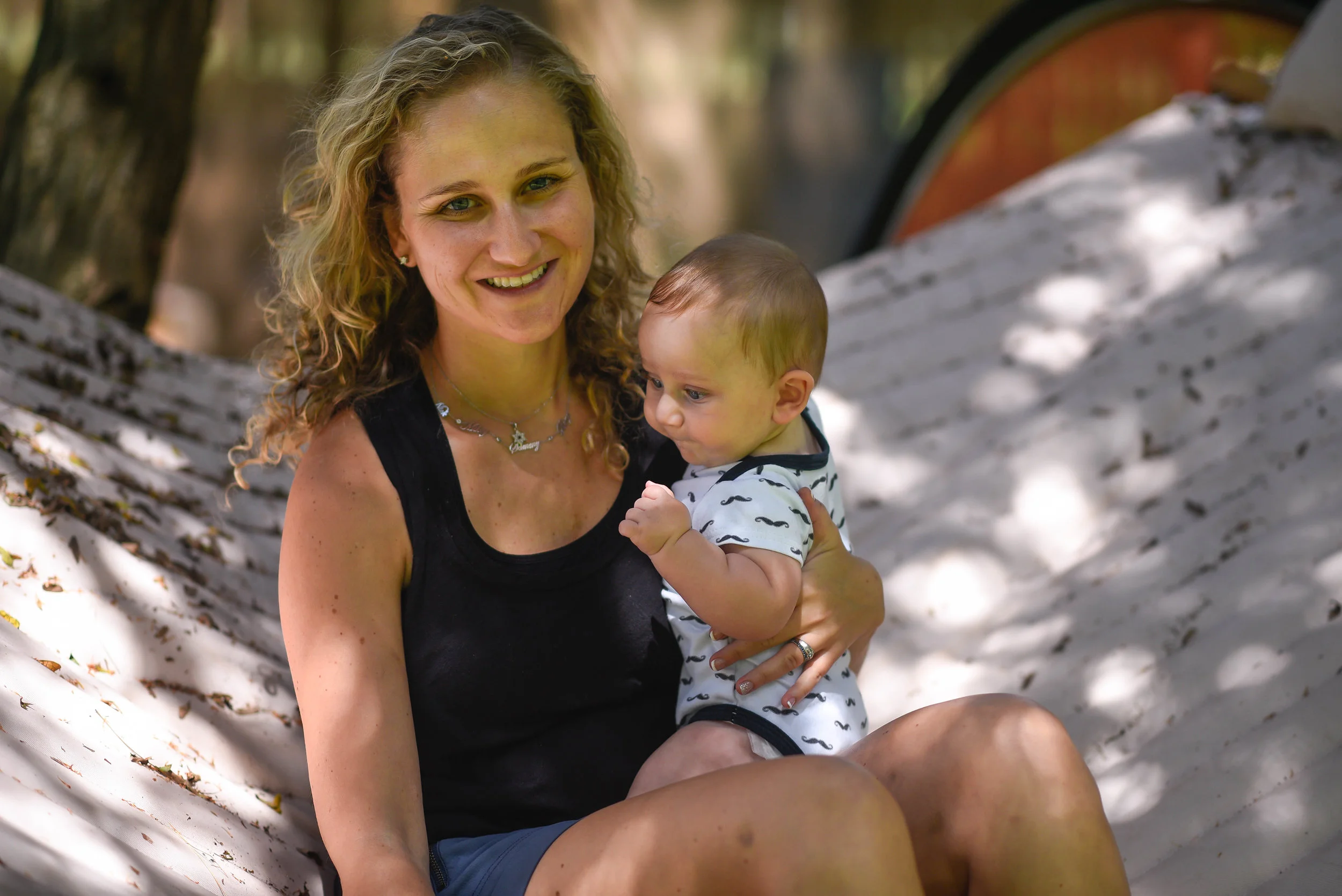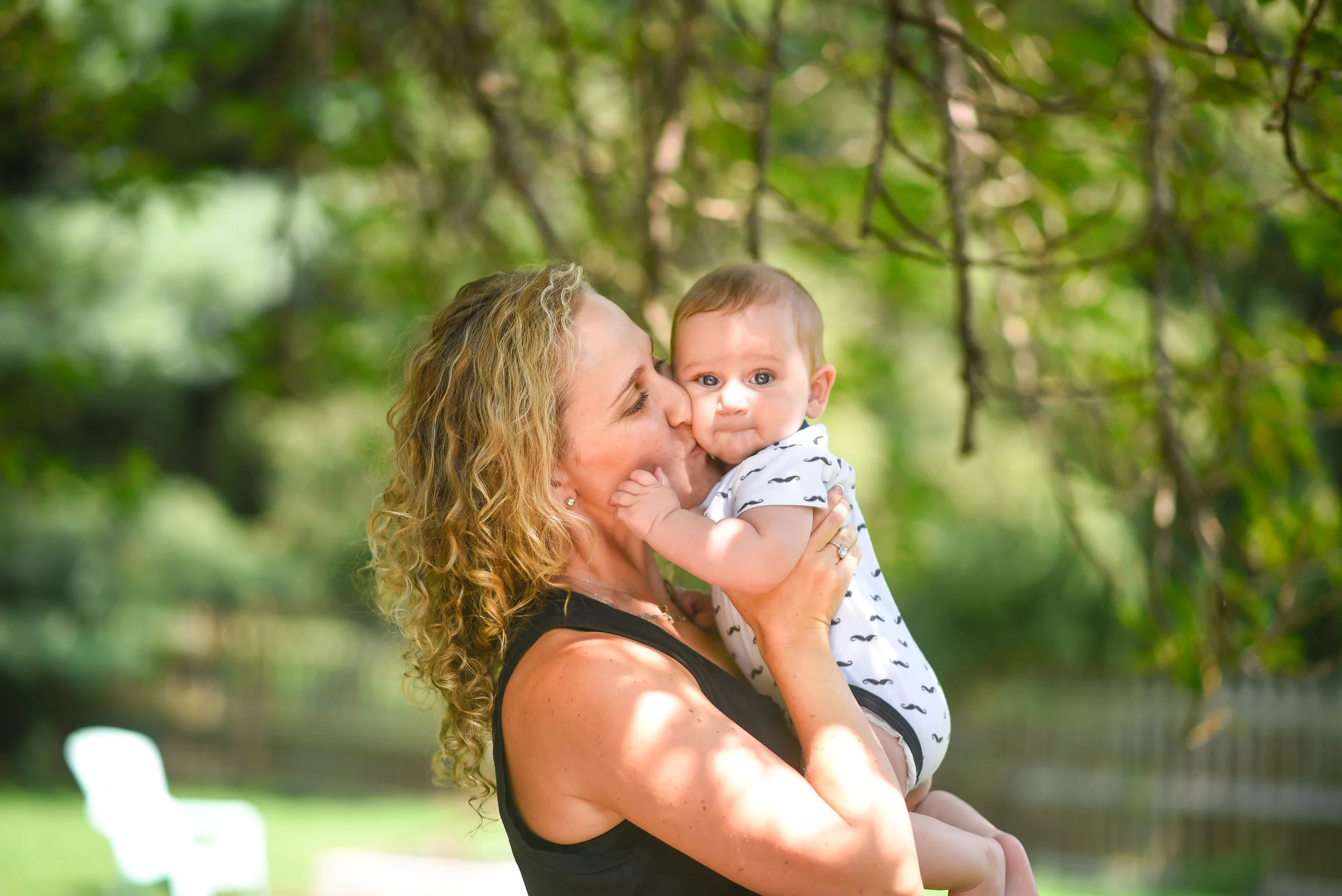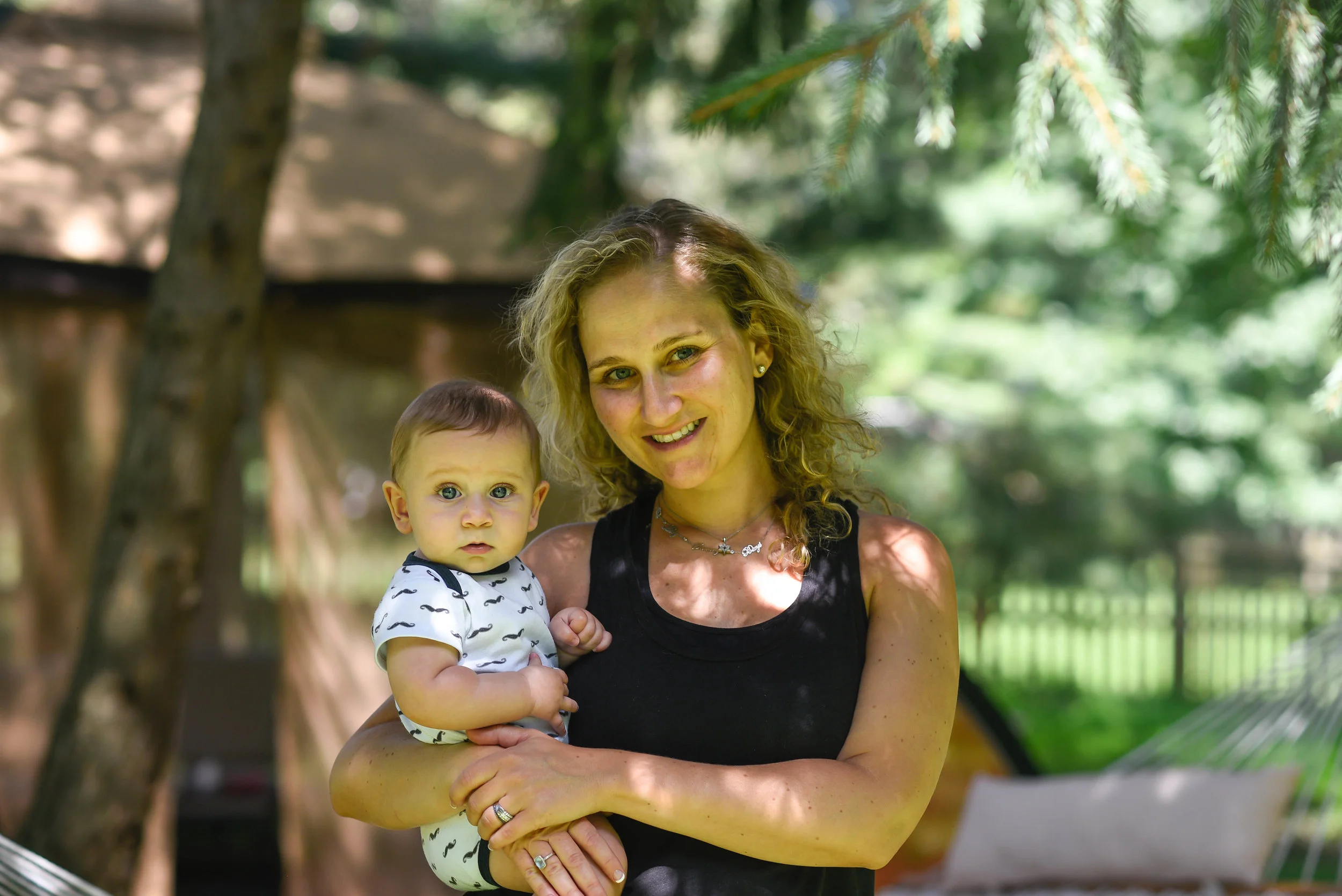Story #48 - Olga, Darnestown MD (USA)
I have four kids. All boys. I had my first son via emergency C-section, and all the other ones were VBAC. I almost died after I delivered my last baby. My son was born on March 5th, 2018. Super easy delivery, no complication. I went home two days later, feeling fine, but my bleeding kind of never stopped. Then exactly two weeks after he was born, I woke up in a small pool of blood. I went to the bathroom and passed a clot – half a tennis ball – and then blood kept coming out. My husband is military and told me I needed to go to the hospital, and he dialed 911. We called family for support, and I left the house in an ambulance. When I got to the ER at Shady Grove at 12:40am, no one was concerned. It was like I was coming in with a scratch. They put me in a regular room with an IV, but the room didn’t have a bathroom. I had to walk down the hallway, and every time I would stand, blood would gush out. The nurses were like “Meh, that’s good, you want the clots to come out.” They didn’t have postpartum pads available in the ER, so I had to put a bed sheet between my legs to walk down the hallway. There was blood everywhere. They eventually ordered an ultrasound, and after it was done, they wheeled me back to the room and just left me there, bleeding through all the sheets, gushing out blood, with no care. My mom, who is a hematologist, stayed by my side the whole time, going in and out of the room to see if a doctor would come to see me. None came. Just the nurses – all male – who wanted nothing to do with that area. Within five hours, I was catching clots the size of a football with my hands. I can still feel them coming out of my body; it was like birthing a child. For 10 hours, I was in the ER going through that. Somehow, I stayed conscious the entire time. I was pumping every 2 hours, and I think this is what kept me going. My mom would drive back and forth between my house and the hospital to deliver the milk to my son. I didn’t have a physical exam until 5:30 in the morning when the hospital OB came down. She told me I would need a DNC because she thought there were retained products left in the uterus. But when I asked if they had contacted my own OB at GW like I had asked when I arrived hours ago, she just said “Oh you have a doctor? Then I can’t treat you,” and she walked out and shut the door. She left me. She just left me.
At this point, my mom started yelling at the nurses to get a doctor in there, but their answer was always the same: we are monitoring her. No one helped me go to the bathroom. They would only send a cleaning crew to clean up the floor and a nurse to change the sheets once in a while. One even came once and said, “Oh did you make a mess in there again for me?” It took them ten hours to finally get in touch with my OB and wheel me into the OR for a DNC. No one had monitored my blood loss, which is hemorrhage protocol 101. It was supposed to be a 20-minute procedure, but after one hour and a half my OB came out and told my husband, who had arrived in the meantime, and my parents, that they couldn’t stop the bleeding. They needed their consent to do a uterus embolization, which meant I couldn’t have kids anymore. My husband had to sign for that. I vaguely remember being put into another room and given more anesthesia. I didn’t feel anything, but I could hear the interventionist talking about going through my groin to cauterize one of my arteries that was bleeding into my uterus. When it was done, they put me in ICU as precautionary. I got five bags of blood transfused. I spent two nights at the hospital, and then they let me go home. Then exactly three weeks after, as I was sitting on the couch with my baby, I felt a gush of blood again. This time, I knew what was happening, so I called 911 right away. It was the middle of the day, and I think that made all the difference in the world: people were awake. The nurses were also all women. The EMTs started the IV in the ambulance, and someone called my OB as soon as I got to the ER. There is this one nurse who never left my bedside ounce. I would pee in a bedpan so they could monitor the bleeding. At some point, I was shaking uncontrollably, and then I just remember the nurse flipping the bed, and someone telling me I’d have to have a hysterectomy because it was the only way to stop the bleeding. My OB called this one laparoscopic specialist, and he drove all the way from Holy Cross to do the surgery via my bellybutton. He removed my uterus and my cervix, and then finally, the bleeding stopped.
Sometimes, I’m overpowered by emotions because of how close I came to not being here. I’m not religious, but I think God was somewhere in that room that day. My heart didn’t stop. I didn’t go into shock. When I came home after the hysterectomy, I had to go back to my life with four kids. I was in a lot of pain. My husband was here, my mom also came every day, and my mother-in-law flew from California. I think PTSD is definitely there. I’m constantly thinking about what happened. I’m reading about it non-stop. It’s traumatic having blood just gush out of you, but it’s so much more traumatic not being taken care of. I did see someone right after, for a month and a half. She helped me figure out some imaging techniques. That’s actually why I got this gazebo, to sit in. She said I needed a place that was calming. What’s also hard it that no one else that I know has gone through anything like this. No one really gets it, how traumatic it really was. My mom was there with me, and I think seeing me like that was traumatic for her, so we sometimes talk about it. She tries to be really positive, to focus on the fact that I am alive. I am. But I can’t control it… I don’t have a case against the ER, and it makes it more difficult for me, to know that nothing can be done. After no lawyer would take the case, I thought, What else can I do to get my story out, with the goal of improving postpartum care in ERs? This is how I found this project, via the Facebook near-miss survivors page. I’ve talked to a reporter for USA Today too, the one that did “Deadly Deliveries.” I filed a complaint with the state, and I know it made it to Shady Grove because I got a call from one of the vice-presidents, apologizing. Apparently, it never happens.
I’d like for them to have a hemorrhage protocol on the wall in the ER, like at GW. Not just in the postpartum ward, but everywhere: equalizing care for women, so we’re not dismissed anymore. Right now, I don’t want to go to work, I just want to keep advocating for this cause, because I feel that’s all I can do. I don’t think I would be able to get through it without my family and my close friends. It was like a village supporting my family and me when that happened. It’s hard because it’s like if this event erased all my other postpartum periods. I struggled with my first, but it doesn’t feel like it even happened. This trauma overpowers everything else in my life. And even if we didn’t plan on having more kids, not having the option anymore is very difficult. People are always like “How’s the baby? Four boys huh? Are you going to try again for a girl?” and the answer is always “No. I have no more uterus.” After that, I usually start sharing my story. Some people cry, most are shocked, but they become aware. I talk to my husband a lot too. He has received two purple hearts and was injured twice when he was deployed. When I tell him that no one seems to get how I feel on the inside because, on the outside, I look fine, or that I can still feel the gush of blood or the other sensations from that event, he really gets it. One thing he helps me with is not to be a victim, but a survivor. There’s nothing I can do as a victim, but a lot can be done as a survivor. At the end of the day, this is how we’re going to deal with what we went through that matters. I had a hard time transitioning from one state to another, because of the lack of legal recourse against the hospital; it felt like I could not get any closure to my story. The ER messed up so badly, and I was just another woman who almost hemorrhages to death, but didn’t. Why would anyone care? But the thing is, I think people do care. I think when people hear the story, they start caring. And that's how you get something accomplished, that's why I keep telling my story.



